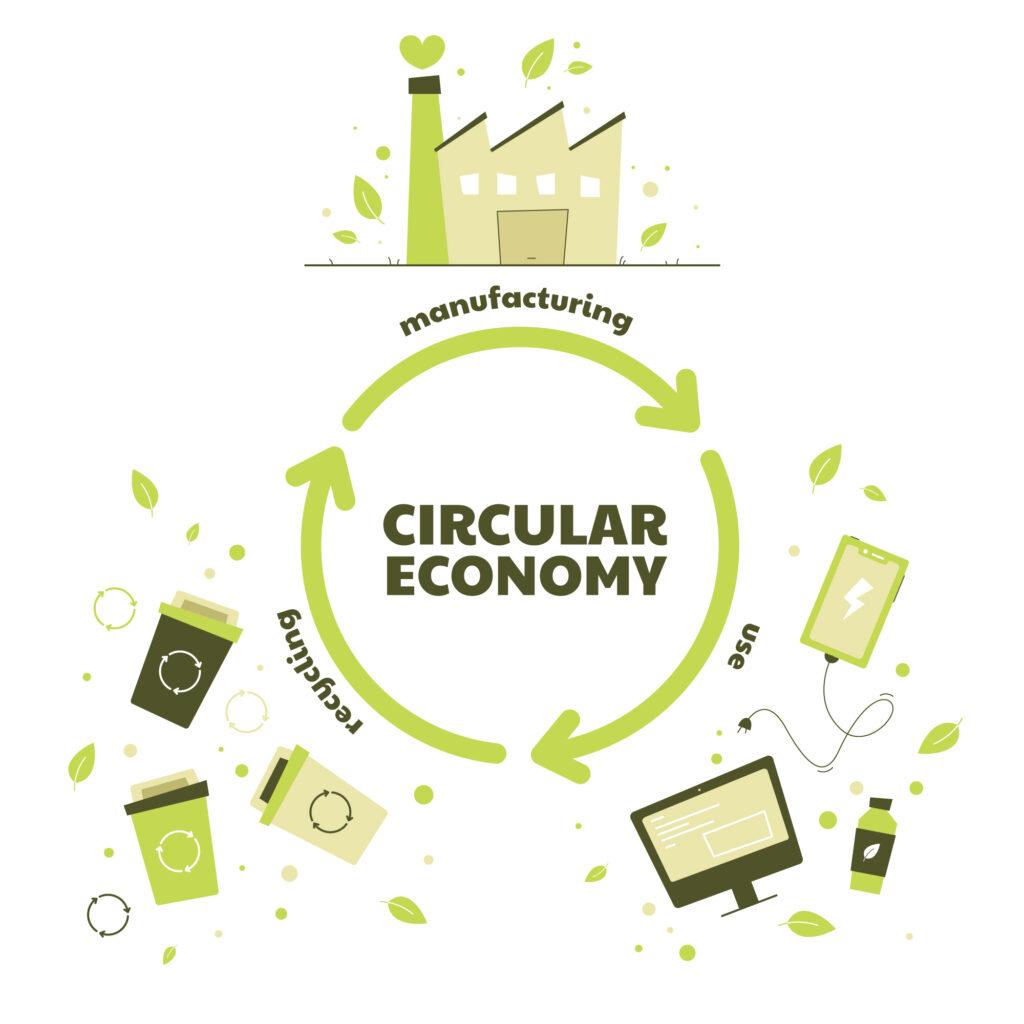In the quest for sustainable living, the synergy between Circular Economy and E-Waste Recycling emerges as a powerful force. Let’s unravel the intricacies of these interconnected systems and understand how they jointly contribute to a healthier ecosystem.
What is Circular Economy?
Circular Economy is a holistic approach to resource management that challenges the traditional linear model of production and consumption. Instead of the “take, make, dispose” pattern, Circular Economy emphasizes the continuous use and reuse of resources to minimize waste and environmental impact.
E-Waste Recycling in the Circular Economy: A Perfect Fit
At the heart of Circular Economy lies the concept of closing the loop by full utilisation of a product in a way to produce least waste possible. E-Waste Recycling aligns seamlessly with this principle by extending the lifespan of electronic devices. Rather than discarding them, recycling ensures that valuable materials are recovered and reused in the production cycle.
Salvaging Precious Resources

Electronic devices are a treasure trove of valuable resources like gold, silver, copper, and rare earth elements. E-waste recycling plant salvages these materials, reducing the need for resource-intensive mining and extraction. This not only conserves valuable resources but also minimizes the environmental impact associated with resource extraction.
To learn about how valuable metals are extracted from E-waste scrap with the help of Technology, you can check our blog E-Waste Recycling: How Technology Is Revolutionizing The Process
Reducing Environmental Footprint

E-waste, if improperly disposed of, poses significant environmental risks due to hazardous materials like lead, mercury, and flame retardants. Recycling mitigates these risks by safely extracting and managing these substances, preventing their release into the ecosystem, and safeguarding our soil, water, and air.
E-waste buyers and recycling companies play a crucial role in reducing the carbon footprint associated with electronic devices. E-waste buyers are entities that purchase E-waste collection for responsible recycling. When electronic devices reach the end of their life cycles, recycling companies step in to collect, dismantle, and process these items. They not only help conserve resources but also significantly reduce carbon emissions associated with mining, manufacturing, and waste disposal.
Improper E-waste Disposal poses a hazardous threat to our environment. To know about it, you can read our blog Improper E-Waste Management: How It Affects The Environment? which explains in detail how our ecosystem is affected by improper disposal of E-waste.
Economic and Job Opportunities

Circular Economy, with E-Waste Recycling as a key component, opens avenues for economic growth and job creation. The recycled materials become valuable inputs for new products, fostering a sustainable economy and creating employment opportunities in the recycling industry.
Empowering Consumers for Sustainable Choices

Consumers play a pivotal role in this circular journey. Opting for products designed with recyclability in mind and responsibly disposing of electronic devices contribute to the demand for sustainable practices, driving the circular economy forward.
Regulations: Upholding Responsible Practices

Stringent regulations govern E-Waste Recycling, ensuring that the process adheres to environmentally sound practices. Governments worldwide are increasingly recognizing the importance of regulating electronic waste disposal to protect both the environment and public health.
Role of E-waste Management Companies in Circular Economy
E-waste management companies in India like ours play a pivotal role in the Circular Economy by facilitating the responsible handling, recycling, and recovery of electronic waste. These companies contribute to the circular principles of resource efficiency and waste reduction. They work at systematically collecting, dismantling, and processing electronic devices at the end of their life cycles.
In essence, E-waste management companies serve as essential cogs in the Circular Economy, closing the loop by transforming discarded electronics into valuable resources, thereby fostering a more sustainable and resource-efficient approach to electronic product lifecycle management.
Conclusion
In conclusion, the connection between Circular Economy and E-Waste Recycling is paramount for a sustainable future. By adopting circular principles and responsibly managing electronic waste, we pave the way for a greener tomorrow—one where resources are conserved, environmental impact is minimized, and ecosystems thrive.
Embark on the journey of sustainable living by understanding and embracing the interplay between Circular Economy and E-Waste Recycling. Each recycled electronic device becomes a symbol of progress, contributing to the harmony of a circular and ecologically balanced world.

